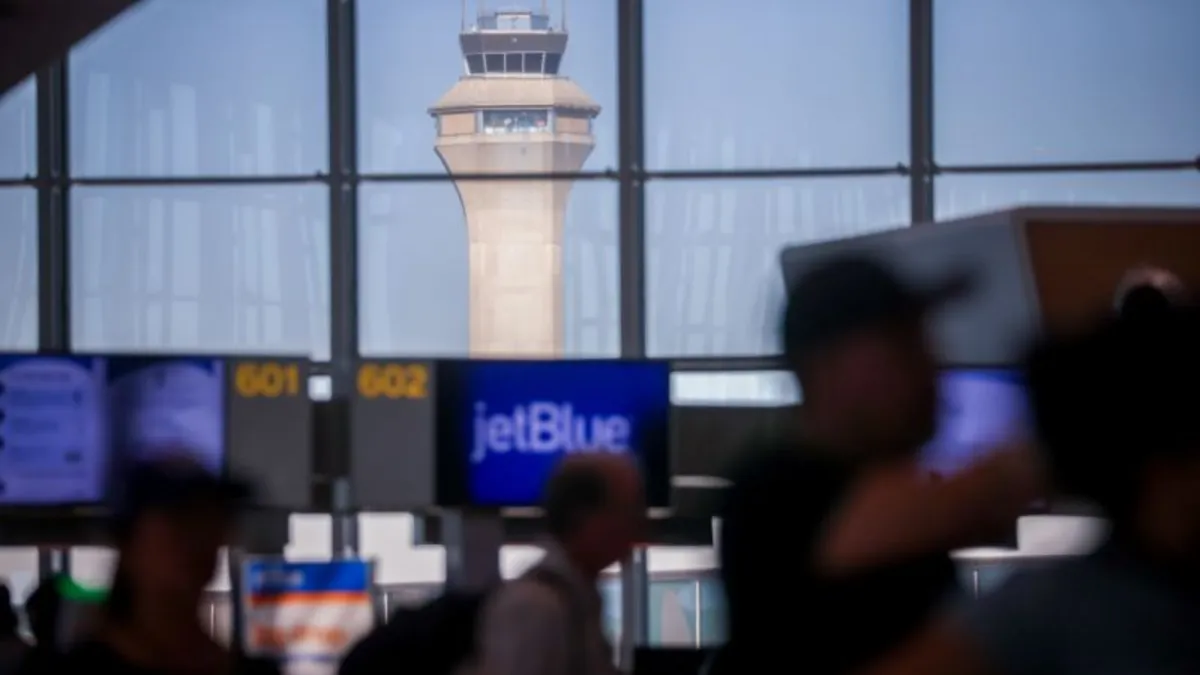
A routine flight departure from Hollywood Burbank Airport in California took an unexpected turn on Monday when a pilot attempted to communicate with the air traffic control tower. Instead of the standard exchange for coordinating takeoff, the pilot was met with an alarming announcement: “The tower is closed due to staffing,” as captured in audio from LiveATC.net. This incident underscores the broader implications of the ongoing government shutdown on travelers nationwide, particularly due to significant staffing shortages among air traffic controllers.
Controllers, classified as essential workers, are mandated to work during the shutdown but are currently not receiving pay. On Monday night, twelve facilities operated by the Federal Aviation Administration (FAA) reported staffing shortages. Major control towers in locations such as Burbank, Phoenix, and Denver experienced what are termed “staffing triggers,” as indicated in the FAA's public operations plan. Other airports, including those in Newark, New Jersey; Jacksonville, Florida; Chicago; Washington, DC; and Indianapolis, also faced similar staffing challenges.
The most notable disruption occurred at Burbank Airport around 4:15 p.m., when the control tower was entirely shut down. Although flights continued to take off and land, they had to adhere to procedures typically reserved for smaller airports without control towers, leading to delays exceeding two and a half hours at times. Additionally, ground delays were reported at both Denver International Airport and Newark Liberty International Airport, where flight departures were halted until sufficient controllers could manage the air traffic. Given that these airports are significant hubs for United Airlines, the impact was felt acutely, although the airline did not provide a comment to CNN regarding the situation.
Transportation Secretary Sean Duffy highlighted a troubling trend: the number of controllers calling out sick has surged since the onset of the shutdown. Addressing reporters after speaking with controllers at Newark, Duffy remarked, “Now what they think about as they’re controlling our airspace is, ‘How am I going to pay my mortgage? How do I make my car payment?’” While Duffy affirmed that the airspace remained safe, he acknowledged the heightened stress among controllers, stating, “Yes, they are more stressed right now in our towers.” He assured the public that the government would take necessary actions to maintain safety in the skies.
The current situation mirrors the disruptions caused by a previous 35-day government shutdown from December 2018 to January 2019, which was precipitated when several air traffic controllers opted to stay home, causing significant air traffic delays. This time, the potential for similar outcomes looms due to tight staffing levels. Duffy remarked on the dire choices some controllers might face, saying, “If someone has to take sick leave to drive Uber to make the difference, those are decisions they’re going to make themselves.” He urged for an end to the shutdown, attributing the stalemate to congressional Democrats.
The National Air Traffic Controllers Association (NATCA), the union representing controllers, emphasized the long-standing issue of staffing shortages. In a statement, NATCA noted, “It is normal for a few air traffic controllers to call in sick on any given day, and this is the latest example of how fragile our aviation system is in the midst of a national shortage of these critical safety professionals.” Currently, nearly 11,000 certified controllers are on duty, many working extended hours to ensure the safety of millions of travelers.
Adding to the difficulties faced by travelers during the shutdown, the Essential Air Service program, which provides subsidies for airlines to operate in smaller cities, is set to expire soon. The Department of Transportation announced that it had “exhausted every resource” to extend the funding, which is critical for ensuring air service to rural communities. Transportation Secretary Duffy pointed out the particular vulnerability of states like Alaska, where air travel is often the only means of transportation for many small communities.
Despite the impending subsidy expiration, several airlines, including Skywest Airlines and Alaska Airlines, have expressed their commitment to honor service commitments for the time being. However, they warned that prolonged shutdown conditions could lead to operational disruptions.
According to a 2023 report from an independent panel of aviation safety experts, government shutdowns severely undermine the FAA’s ability to fulfill its safety-critical mission. The report highlights that such interruptions disrupt essential functions, including hiring and training new air traffic controllers, which exacerbates the existing staffing crises. It also delays critical technology modernization programs and airport infrastructure investments.
Ultimately, the report emphasizes that “a 24/7, 365 days/year safety-critical operation, which supports 5.2 percent of national Gross Domestic Product, should never experience a lapse in appropriations or authorization.” As the current government shutdown continues to unfold, the aviation industry and travelers alike must brace for potential disruptions amidst ongoing staffing challenges.